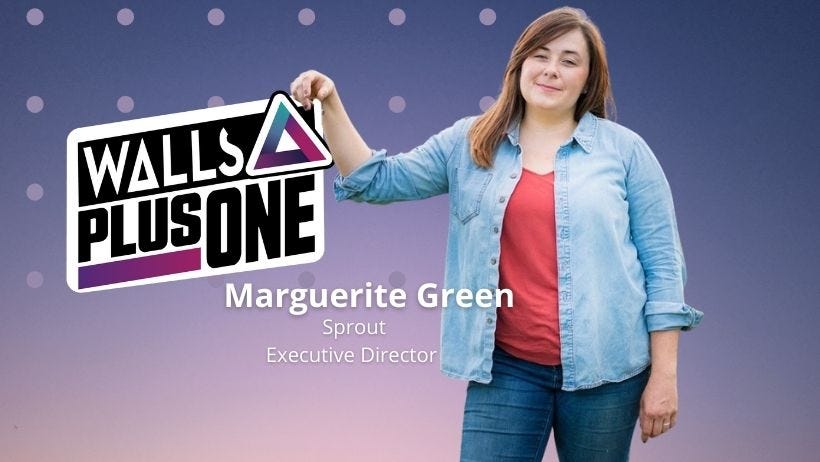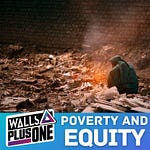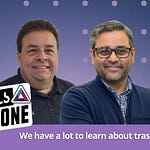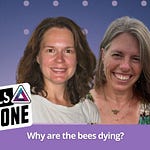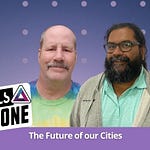In many ways this episode is a seamless continuation from our last episode. We’re going to build on many of the ideas put out there by Jessi Parfait and Ian Richardson. If you’d like to listen to that episode first, CLICK HERE.
In this episode, we’re going to talk about the idea of using old methods for creating new sustainable practices, as well as the need for more education surrounding food and nutrition.
First, Carl Motsenbocker, an LSU professor and Executive Director of the Louisiana Farm To School program called Seeds to Success. Some of the resources they provide include:
Harvest of the Month: Ready-to-go materials that will help you promote local food in your classroom, cafeteria, and community.
Seeding LA: Fun and educational materials for teachers, parents and students related to agriculture and nutrition both at school and at home. This resource provides all that you need to know about how to grow Louisiana’s native fruits and vegetables at your school or home, how to apply those skills to learning, and how to turn your interests into a budding career.
Purchasing Local: Resources to help find local food near you and to connect with the right producers. Menu planning resources are also provided.
Education is going to be the key because currently we are plant blind. We’re seeing it in the lack of connection to our natural environment and in the lack of understanding about healthy eating.
Marguerite Green is our second guest and she is the Executive Director of Sprout, a New Orleans-based nonprofit organization focused on creating a community food system rooted in equity. The organization has several programs rooted in that mission. CLICK HERE to learn more about them and how to get involved.
Sprout started as a simple garden and has grown into a major operation with roots sprawling in all directions. It’s very similar to the way The Walls Project started with the goal of putting one mural up in downtown Baton Rouge and grew to encompass four unique programs and this podcast.
The primary program we discuss in this episode is a pilot program that is working to combat climate change by giving interested farmers opportunities to learn new techniques that are more sustainable. They key is helping them to afford the time needed to devote to learning those practices.
Both guests in this episode represent individuals with or from LSU’s agriculture program. However, Southern University is also located in Baton Rouge and has an amazing agriculture program. To learn more about that program, CLICK HERE.
Also featured in this episode is Helena Williams, the head of our marketing department. She takes a look at the historical perspective of our agriculture system and how that’s played out in our grocery stores. This was part of her research for an article she published in our monthly newsletter. To read that article, CLICK HERE.
ADDITIONAL LINKS
In this episode Carl mentioned Judy Myhand. She is an instructor in the School of Nutrition and Food Sciences at LSU. Read more about her in this article published in InRegister Magazine.
Greaux the Good bill introduced during the 2022 legislative session.
TERMS
We’re building on this list with every episode. Below are the terms related to this episode. CLICK HERE to see the full glossary of terms.
Carbon bank - by changing their farming practices, farmers can store carbon in the soil, helping to reduce carbon dioxide gas in the atmosphere and slow global warming. CLICK HERE to learn more.
Commodity farmers - agricultural commodities include plant and animal products and their by-products, such as crops, forestry products, hydroponics, nursery stock, aquaculture, meat, on-farm generated manure, and fish and seafood products.
Cover crops - a long-term investment in improved soil health and farm management. It involves a plant that is used primarily to slow erosion, improve soil health, enhance water availability, smother weeds, help control pests and diseases, increase biodiversity and bring a host of other benefits to your farm. Cover crops have also been shown to increase crop yields, break through a plow pan, add organic matter to the soil, improve crop diversity on farms and attract pollinators.
Farm subsidies - also known as agricultural subsidies, are payments and other kinds of support extended by the U.S. federal government to certain farmers and agribusinesses. While some people consider this aide vital to the U.S. economy, others consider the subsidies to be a form of corporate welfare. CLICK HERE to learn more.
CLICK HERE to see the EWG Louisiana Farm Subsidy Database.
Gulf South for a Green New Deal - launched in May 2019 in New Orleans with more than 800 attendees formally representing more than 30 tribal nations, neighborhood associations, faith groups, student groups, and community organizations. The policy platform is a living document that serves as a foundational starting point for informing localized policy development, communications and actions. It has been submitted to multiple U.S. congressional committees, including The House Select Committee on the Climate Crisis, House Committee on Natural Resources, Bernie Sanders Presidential Campaign and the United Nations Special Rapporteur on Extreme Poverty and Human Rights. CLICK HERE to learn more.
Herbicides - a substance that is toxic to plants, used to destroy unwanted vegetation. It is also known as weedkillers.
Parity in vegetable production - The word “parity” for general non-farm use is the quality or state of being equal or equivalent. Applied to farming, parity represents economic equality for farmers that is also economic justice. Comparison of equality can be made in a variety of ways, such as in comparison to other times, the rest of the economy, or parts of it, and various comparisons within agriculture. CLICK HERE for more information.
Pesticides - a substance used for destroying insects or other organisms harmful to cultivated plants or to animals.
We really want to hear from you. Send us a message on social media, or email us at info@wallsplusone.org. We want to know what you think about the show, what questions you have related to climate change, or just any messages of encouragement you might have.




